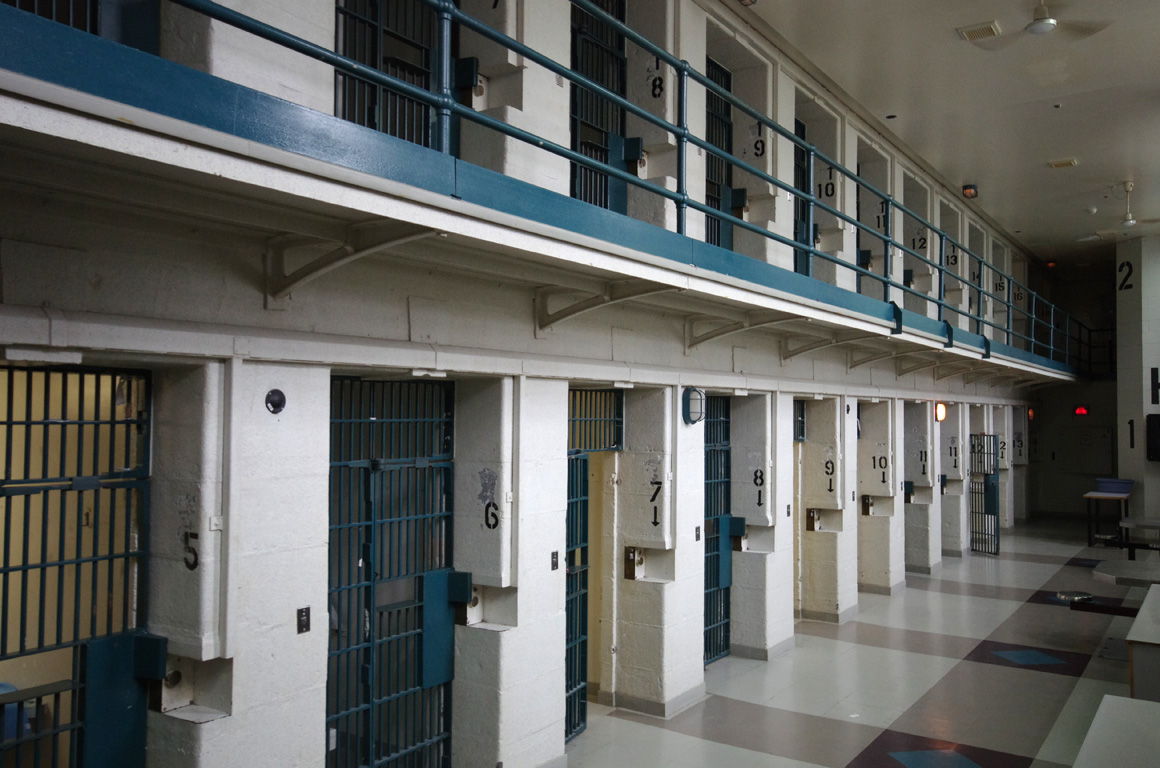If the allegations against American billionaire financier Jeffrey Epstein were not alarming enough on their own, his story became even darker earlier this month when, on the morning of August 10, he was found dead in his cell at the Metropolitan Correctional Center in New York from an apparent suicide. His death dominated the news cycle, causing outcry across the political spectrum over the quality of the security at the prison, the frequency with which guards checked on his safety, and why he was taken off suicide watch despite having an apparent attempt just weeks earlier. To those who have kept an eye on the American carceral system, however, this was a pretty typical day, just with more news coverage.
The varied and systemic problems with prisons in the U.S. are not new, and they are not improving. In the past year alone, the U.S. prison system has frequently been in the headlines, from investigations into the extreme violence in Alabama state prisons, to the weeks-long power outage this winter in Brooklyn, to the high-profile murder of South Boston mobster James (Whitey) Bulger during a routine transfer. Underfunded, filled-to-bursting from the effects of mandatory minimums in the war on drugs, and guarded by a handful of underpaid workers struggling to stay safe and make ends meet — the violence within U.S. prisons is as horrifying as it is unsurprising.
But what about Canada?
While our problems are perhaps not on par with those experienced currently in the U.S., we have nothing to brag about. Mass incarceration of Indigenous persons, impractical and dangerous incarceration of people with mental health difficulties, and overuse of administrative segregation (known internationally as solitary confinement) as a substitute for improved safety measures are just some of the issues plaguing Canada’s prison system today. Like any system of oppression, those already on the margins suffer the most. Based on the most recent Annual Report from the Office of the Correctional Investigator, last year Indigenous prisoners represented 28 per cent of the federal prison population, while comprising only 4.3 per cent of the Canadian population. Forty per cent of incarcerated women are of Indigenous ancestry. Individuals suffering from mental illness are shuttled back and forth between institutionalization and incarceration as both systems strain under a lack of funding.
Most distressing, and a blight on our international record, is the Canadian prison system’s use of administrative segregation as a cure-all solution when a prisoner poses a problem. In 2015, the United Nations developed a set of standard minimum rules for the treatment of prisoners, or the Mandela Rules, that strictly prohibit solitary confinement and indefinitely prolonged solitary confinement. The Canadian response to these reforms has been underwhelming and insufficient, particularly in provincial institutions.
Slow progress
In light of recent reforms like the Mandela Rules, and with a better understanding of how structural inequalities lead to incarceration of marginalized individuals, there have been slow but encouraging reforms to Canada’s carceral justice. To end the use of administrative segregation, there have been two recent constitutional challenges — one in British Columbia and one in Ontario, both of which were successfully upheld by their respective appeals courts. A class-action suit in Ontario resulted in an order for the federal government to pay $20 million for placing mentally ill prisoners in administrative segregation. Two recent bills, Bill C-75 and Bill C-83, recently passed and should take effect in the next year, ending administrative segregation in federal prisons and providing increased funding for mental health services. These positive steps are encouraging, but it is important to remember how far there still is to go, particularly for those incarcerated provincially. Without consistent funding and attention, prisons are often the first to lose mental health resources, educational opportunities, and other efforts to focus on restoration and rehabilitation rather than punishment.
What next?
One of the most frustrating issues with carceral justice is its lack of exposure. By their very nature, prisons are necessarily hidden away, the events within them mysterious and obscured by high walls, privacy laws, and bureaucracy. Prisoners frequently lack access to necessary services, suffer from human rights abuses, and find themselves locked in an unforgiving system with high rates of recidivism, all while out of sight and out of mind from the rest of the population. There are advocates who work year-round to give a voice to those segregated from society. With their aid and persistence, changes are happening in our criminal justice system that are certainly for the better but are far from enough. With the federal election fast approaching, as well as provincial and territorial elections in Manitoba and the Yukon, now is the time to keep in mind that austerity measures hit those most vulnerable in our society the hardest, including those forcibly kept out of sight.
Karly Wilson is an articling student at Iler Campbell LLP, a law firm specializing in co-op, non-profit and charitable law. She works on a range of issues including housing, employment, governance, and human rights matters.
Iler Campbell LLP is a law firm serving co-ops, not-for-profits, charities and socially-minded small business and individuals in Ontario.
Pro Bono provides legal information designed to educate and entertain readers. But legal information is not the same as legal advice — the application of law to an individual’s specific circumstances. While efforts are made to ensure the legal information provided through these columns is useful, we strongly recommend you consult a lawyer for assistance with your particular situation to obtain accurate advice.
Submit requests for future Pro Bono topics to [email protected]. Read past Pro Bono columns here.
Image: Boardhead/Wikimedia Commons




